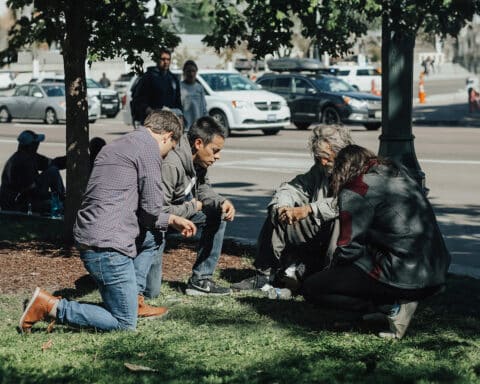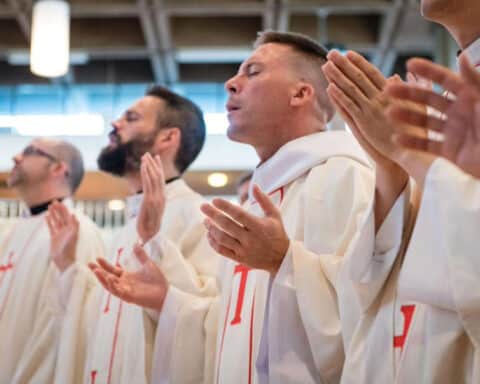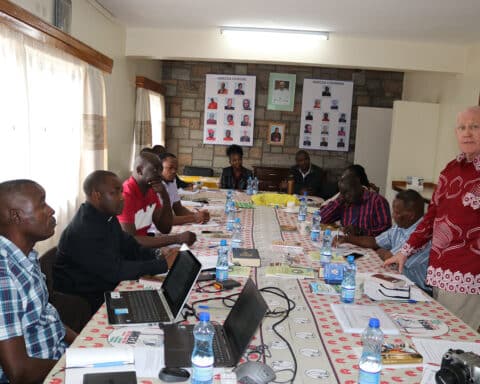
This is a quote from Sanderson Jones, founder of The Sunday Assembly in the United Kingdom — an organization that is described as “a church without the religion.”
A recent report issued by the journal “Secularism and Nonreligion” asserts that secular congregational gatherings can boost wellbeing in the same manner as going to a religious service, and it has based its findings on research conducted with Jones’ organization.
After studying the “Assembly,” researchers asserted that spending 2.5 hours a week socializing and singing was linked to an extra 10 percentage points on the “national wellbeing scale” in the U.K.
Jones, of course, was elated at the assertion that people’s lives were being “improved.” “This is exactly what we wanted to happen,” he said.
For the record, I, too, enjoy a good karaoke session with my friends. I wonder if they sing oldies or work off of the Billboard Top 100? Seriously: What do they sing?
But before taking the snark train too far down the tracks, it’s probably important to consider this point by Jones: “Society is experiencing a crisis of meaning and belonging. Congregational communities answer the most fundamental human needs for belonging and meaning. The problem is that today, religious stories don’t ring true in our increasingly secular age.”
Ouch. For anyone involved in religious work, that one should hurt. Not only are so-called “secular churches” available as an alternative to religion, they are being portrayed as its antidote. But what’s really painful about that last statement is how it is so false. I have no objections to the claim that society is experiencing a crisis of meaning and belonging — but moving away from God and into community for community’s sake is moving in the wrong direction. It is only in Jesus Christ where the most fundamental human needs for belonging and meaning can be found.
This month at Sunday Mass we are listening to John’s Bread of Life Discourse. It is a religious “story” packed to the brim with the drama only the Gospel can bring. On the heels of miraculously multiplying loaves and fish, Jesus is patiently trying to explain to the crowd that there is more to life than a full stomach. That he, in fact, is the bread of life, and that “whoever comes to me will never hunger, and whoever believes in me will never thirst” (Jn 6:35).
Similarly, there is more to life than a community jamboree. Our community of believers are members of the body of Christ, in which we are incorporated through baptism and strengthened through holy Communion. In this community, we find life’s true meaning: the conformation of our hearts to Jesus, the Bread of Life — that we may follow him in this life and be with him in the next.
Gretchen R. Crowe is editor-in-chief of Our Sunday Visitor. Follow her on Twitter @GretchenOSV.





